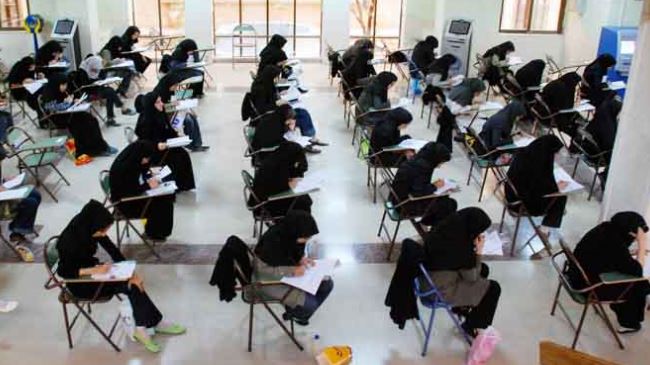[caption id="attachment_113552" align="alignright" width="257"] File photo shows a university entrance exam in Iran.[/caption]
File photo shows a university entrance exam in Iran.[/caption]
A new recent survey has shown that share of Iranian women in higher education and the number of young Iranian women admitted to universities have been constantly on the rise in recent years.
According to the report prepared by the Iranian Judiciaryís High Council of Human Rights, the Islamic Republic has pursued broad-based policies and approaches with the goal of enhancing access to higher education for people from all walks of life, especially women.
The Iranian governmentís policies have been aimed at promoting scientific education in universities and boosting the general knowledge of the Iranian people, the report said, adding that that Iranian centers for higher education in both public and private sectors have provided great opportunities for women to have access to postgraduate studies at all levels.
The literacy rate of women aged 15-24 has been increased from 97.1 percent in 2009-2010 to 97.7 percent in 2011-2012, while the figure for female students in state universities showed a 56-percent growth over the same period.
Out of 1.176 million people registered for higher education in the Iranian academic year of 2012-2013, women accounted for 522,248 (44.38 percent) while menís share stood at 654,593 (55.62 percent).
In the same academic year, a total of 4.367 million were admitted to various institutions to continue higher education studies about half of whom were women.
Figures provided by the report also showed that 716,096 people completed their postgraduate studies in the Iranian academic year of 2012-2013, which included 326,753 women.
The number of female university students also increased by almost twofold from 1,231,035 in the Iranian academic year of 2005-2006 to 2,106,639 in 2012-2013.
It is worth mentioning that there were more female university students during the academic years of 2005-2006 and 2009-2010 in comparison with male students.
By Press TV
The Iran Project is not responsible for the content of quoted articles.

 QR code
QR code